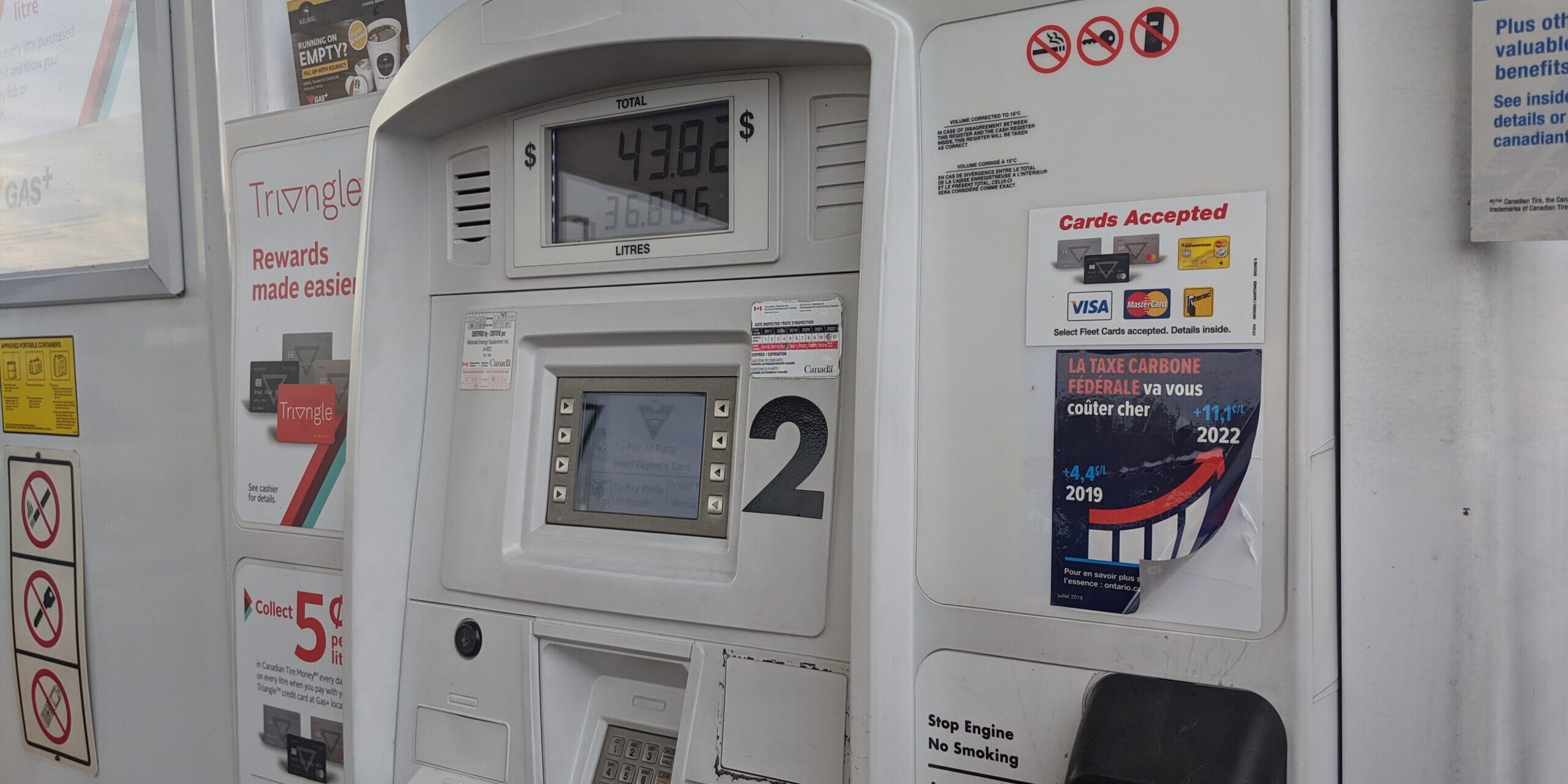A forensic analysis of Statistics Canada data on the composition of recent inflation confirms that fossil fuels haven’t protected Canadians from affordability problems. In fact, fossil fuels were the biggest single cause of those problems.
The 2022 spike in global oil prices, channeled immediately into higher prices for fossil fuel products sold in Canada, was by far the biggest single factor setting off post-pandemic inflation. From January 2021 through June 2022 (when inflation peaked), consumer prices for fossil fuels grew 81 per cent. Prices for fossil fuels used as inputs by businesses grew even more, by 127 per cent.
The direct costs of higher fossil fuels caused almost half of all consumer price inflation in that time—and more than half of inflation over the Bank of Canada’s two per cent target. Add in the indirect costs faced by businesses in other industries (from agriculture to transportation to construction) for their fossil fuel purchases, all passed on to consumers, and the dominant role of fossil fuels in the inflationary surge is clear.
This will be shocking news to Canadians who blamed the carbon tax, or immigrants, or Justin Trudeau personally, for inflation and affordability challenges after the pandemic. It’s no accident that vested interests—from the oil industry to the Conservative Party—have tried to divert Canadians’ righteous anger toward those scapegoats. They don’t want us to know where the true problem originated.
Since that price spike did not reflect fundamental economic factors (like supply and demand, or cost of production), it fed directly into the profits of petroleum corporations around the world—including in Canada. Canadian oil and gas operating profits grew by $151 billion (compared to 2019 levels) from 2022 through 2024.



I don’t doubt it’s uneconomical in a free market sense. When you’re thinking of the costs of decoupling domestic fuel prices from the global market, are you also considering the costs of inflation during global price shocks? And I don’t mean just the pure economic costs of inflation, I also mean the downstream political and stability costs, such as disruption of decarbonization policy.
If it doesn’t make economical sense, then by definition, you’re providing subsidies. Especially when you talk about infrastructure that’s supposed to be amortized over decades-and-decades, yet we are aiming to be almost free of fossil fuels in the next 5 years, and net zero in 25 years. So I really question why you’d want to subsidize Canadian consumers and businesses from “global price shocks”? That’s a stick to encourage Canadians to pursue energy independence through electrification, etc.
I explained why. People will not bear the stick and instead beat you with it by electing fossil fuel funded governments that kill decarbonization policies. Policies and governments that ignore people’s material conditions do not last long in a democratic system. I don’t like where people currently are, commuting with F150s in the GTA, but that’s the reality. It’s alright if you don’t buy that but I don’t think my argument is devoid of reason.